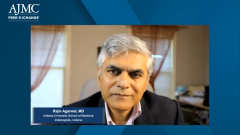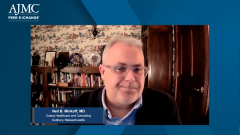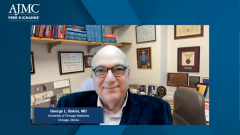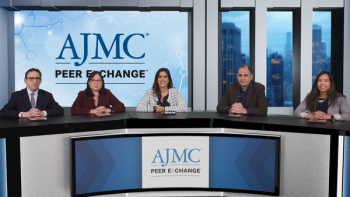
Preventing Progression of Chronic Kidney Disease
A panel of clinicians explain why action is needed to help prevent the risk of progression of chronic kidney disease.
Episodes in this series

Neil B. Minkoff, MD: Of the patients we’re talking about, how many of them end up on dialysis or a transplant list? How prevalent would you say that is? This is open to everybody.
Rajiv Agarwal, MD: Neil, everybody in this group will agree that it’s the lucky ones who go on to dialysis. There’s this gap we have, the stage 3/stage 4 gap. We have a huge number of people with stage 3 kidney disease, and barely a couple hundred thousand people with stage 4 kidney disease. What’s leading to such a huge gap? Although we don’t know for certain, a lot of people speculate that people die before they ever reach dialysis. These are people who then progress to end-stage kidney disease. There are half a million people with end-stage kidney disease, while there are probably 24 million or 25 million people with chronic kidney disease [CKD]. You can see that dialysis is the tip of the iceberg. We often think chronic disease is dialysis, but it’s the fortunate people who are reaching that. It’s really a cardiovascular disease, and unless we recognize this as a cardiovascular disease, we won’t intervene with effective therapies that can make a difference in the trajectory of the natural histories of these diseases over the lifetime of the patient.
George L. Bakris, MD: Yes. In fact, Neil, one of our mutual friends has publicly said that with any study done in stage 4 or higher CKD, there’s an immediate selection bias because you’re dealing with the survivors of CKD, and you can’t necessarily generalize that data to everybody.
Eugene Wright Jr., MD: Neil, to follow up on that from a primary care clinician’s perspective, this changes the whole conversation in the room. Picture this: If you’re sitting there with a patient early on with diabetes and you know their concerns are death and dialysis, if you say, “If you’re lucky enough to survive, you’ll end up on dialysis,” that’s not a good conversation.
Neil B. Minkoff, MD: No, it’s not a good conversation.
Eugene Wright Jr., MD: A much better conversation is, “We now have something that can not only reduce your risk, delay, or significantly prevent your risk of progressing to dialysis, but it may also improve your survivability.” That’s a much different, much more optimistic, and upbeat conversation. Most patients will get engaged with that.
Transcript edited for clarity.
Newsletter
Stay ahead of policy, cost, and value—subscribe to AJMC for expert insights at the intersection of clinical care and health economics.









